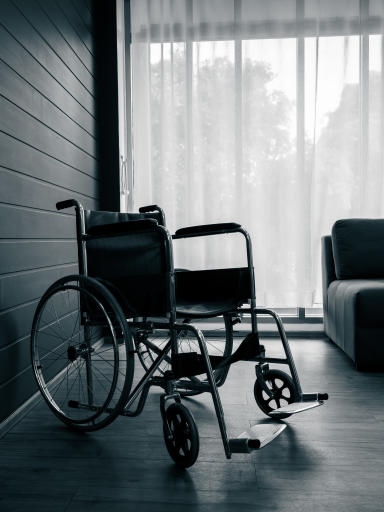Types of Elder Abuse

Elder abuse is a disturbingly prevalent issue in the United States, affecting vulnerable senior citizens nationwide. According to the National Council on Aging, one in 10 older Americans experience a form of elder abuse every year. The types of elder abuse are diverse, from physical and emotional mistreatment to financial exploitation and neglect.
This article will delve into the different types of elder abuse, providing significant detail on what each form constitutes. We will examine its various forms and explore the legal recourse available to victims and their families, including how Expertise.com can help you find a reputable, local lawyer who specializes in these cases.
1. Emotional and Psychological Abuse
Emotional and psychological abuse is a wide-ranging category and can include the following:
Verbal Abuse: Insults, name-calling, yelling, or using harsh language
Intimidation: Threatening behavior, gestures, or expressions with the intent to frighten or control
Isolation: Preventing the older person from socializing, communicating, or interacting with friends and family
Manipulation: Using emotional manipulation or guilt to control the elder’s actions or decisions
Humiliation: Publicly embarrassing or demeaning the elderly person
Proving liability for these cases can be challenging, but it is possible. It's essential to provide evidence of the abuse — like photographs or witness statements — and a direct link to the harm. Depending on the jurisdiction, proving negligence or intent may also be necessary.
2. Financial Abuse
Financial abuse involves the improper or unauthorized use of an older adult's assets, property, or financial resources for personal gain or without their consent. This type of abuse can take various forms, including:
Fraud: Deceptive practices to access the elder's money or assets, such as identity theft, fake investments, or fraudulent schemes.
Theft or misappropriation: Illegally taking money, property, or possessions belonging to the older person, often without their knowledge or permission.
Coercion or undue influence: Pressuring or manipulating the older adult into making financial decisions or changes to their will, trust, or financial arrangements against their will or better judgment.
Unauthorized use of assets: Exploiting an elder’s funds, bank accounts, credit cards, or property for personal expenses without their consent.
To establish liability, one would typically need to demonstrate evidence of the abuse — such as financial records or bank statements — and illustrate that the elder did not willingly consent to the financial transactions or were coerced into making them.
3. Neglect
Neglect typically refers to the failure of a caregiver to provide the necessary care, attention, and support required to meet an older adult's basic needs. This type of abuse can manifest in the following ways:
Physical neglect: Failing to provide adequate food, water, shelter, clothing, or medical care, leading to physical harm or deterioration in the elder’s health.
Emotional neglect: Ignoring the elder’s emotional needs, such as companionship, social interaction, or mental health support.
Medical neglect: Withholding necessary medical treatment, medication, or therapies, potentially worsening the elder's health conditions.
Personal hygiene neglect: Neglecting to assist with personal care tasks, like bathing, grooming, or changing clothes.
Liability for neglect can be proven with adequate documentation — like photographs or medical records — that support the negligence claim. It can also be helpful to provide a direct link from the source of the neglect to the harm that the elder suffered as a result.
4. Physical Abuse
Physical abuse involves intentionally causing bodily harm or pain to an older person. This abuse can take various forms, including hitting, slapping, or striking the elder, resulting in injuries or pain, and pushing or shoving them against their will. It can also mean:
Using restraints excessively or inappropriately leads to physical harm
Force-feeding or denying them food, water, or necessary medication
Rough handling during personal care tasks, such as bathing or dressing
To establish liability in physical abuse cases, one must demonstrate evidence of the abuse — such as pictures, medical records, or witness statements.
5. Sexual Abuse
Sexual abuse is often categorized as non-consensual sexual contact or activity involving an older person. This is a profoundly distressing form of abuse and can take various forms:
Non-consensual sexual acts: Any sexual activity forced upon an older adult without informed consent.
Sexual harassment: Unwanted sexual advances, comments, or behavior that create a hostile or intimidating environment.
Exploitation: Using an older person's vulnerability to engage in sexual activities or obtain sexual favors for personal gain.
Proving liability for sexual abuse in elder abuse cases can be challenging, but it is possible with appropriate evidence and legal action. Medical records, photographs, physical signs of abuse, and witness statements are the most helpful. It's also important to show that the sexual activity was non-consensual or that the elder could not provide informed consent due to cognitive impairment, physical limitations, or other factors.
Who Is the Most at Risk for Elder Abuse in Nursing Homes?
Specific individuals are at a higher risk of experiencing mistreatment at nursing homes than others. Among the most vulnerable are elderly residents who:
Have cognitive impairments: Elders with conditions like dementia or Alzheimer’s disease are often at higher risk because they may struggle to communicate their experiences, making them more susceptible to neglect or abuse.
Are socially isolated: Residents who lack regular contact with family or friends may face increased risk, as there are fewer people to notice signs of abuse or advocate on their behalf.
Depend on staff for care: Elders who rely heavily on nursing home staff for their daily needs, including bathing, feeding, and medication administration, may be more exposed to potential abuse or neglect.
Families, caregivers, and authorities must remain vigilant in monitoring the well-being of elderly nursing home residents, especially those with these risk factors, to ensure their safety and protect their rights. Regular communication with loved ones in nursing homes and awareness of the signs of elder abuse can help prevent and address these issues effectively.
Find the Best Nursing Home Abuse Lawyer for Your Case
Finding the right nursing home abuse lawyer is crucial for pursuing justice and protecting your loved one's rights. To ensure you choose a qualified attorney, you'll need to consider their experience in elder abuse cases, track record of success, and client reviews — but you can make the process easier by using Expertise.com's concierge service, where we do the work of matching you with top-notch lawyers who specialize in nursing home abuse cases. This saves you time and will ensure you get the legal expertise to address the issue effectively.
Expertise.com StaffAuthor
Step into the world of Expertise.com, your go-to hub for credible insights. We don't take accuracy lightly around here. Our squad of expert reviewers, each a maestro in their field, has given the green light to every single article you'll find. From rigorous fact-checking to meticulous evaluations of service providers, we've got it all covered. So feel free to dive in and explore. The information you'll uncover has been stamped with the seal of approval by our top-notch experts.




